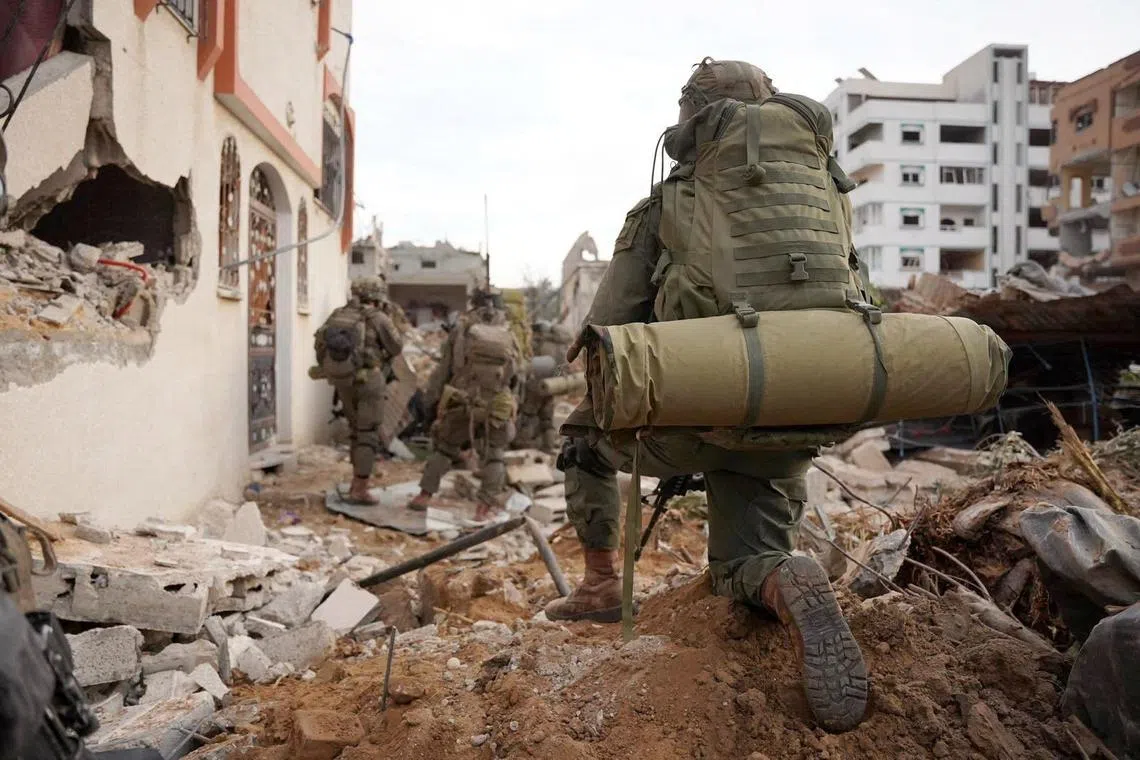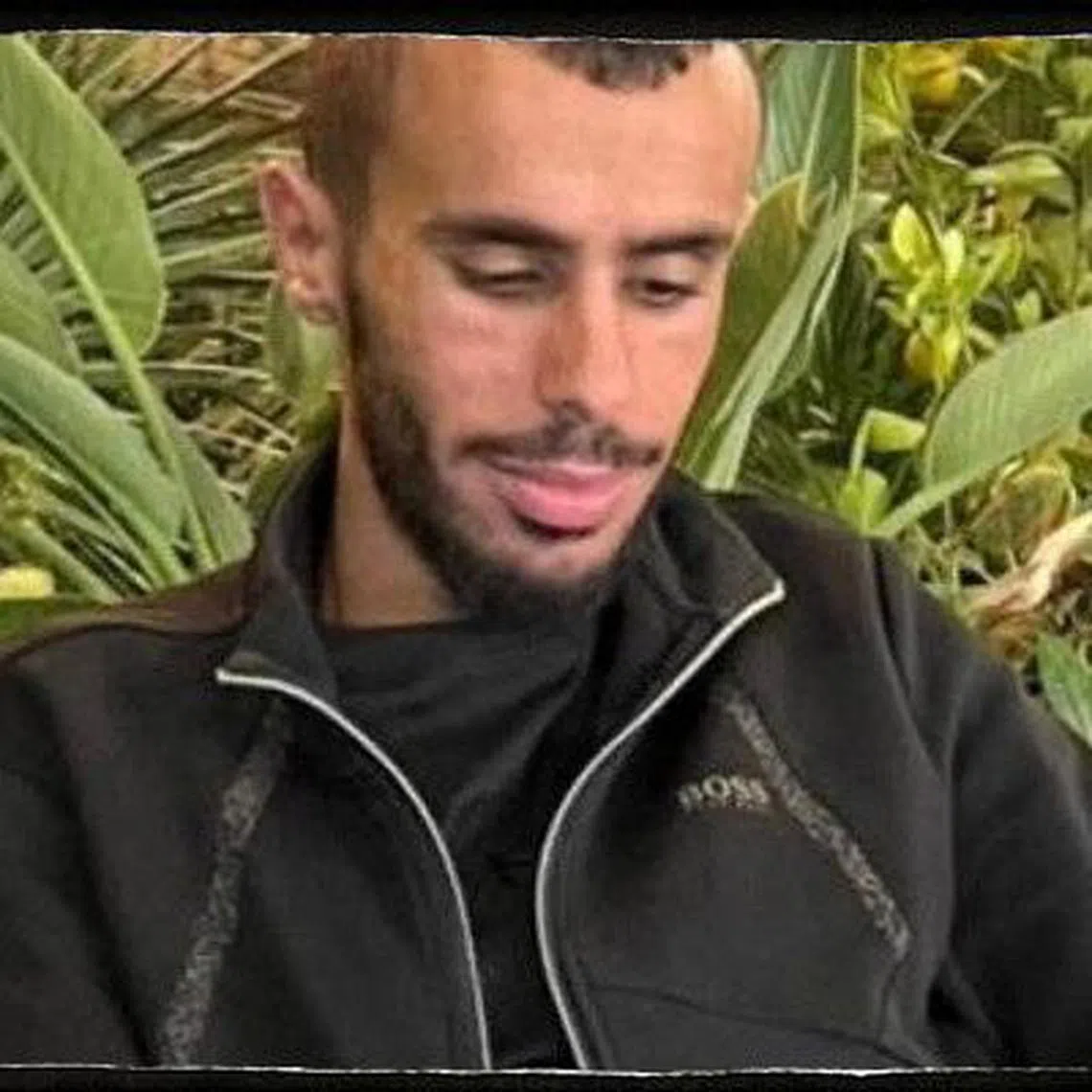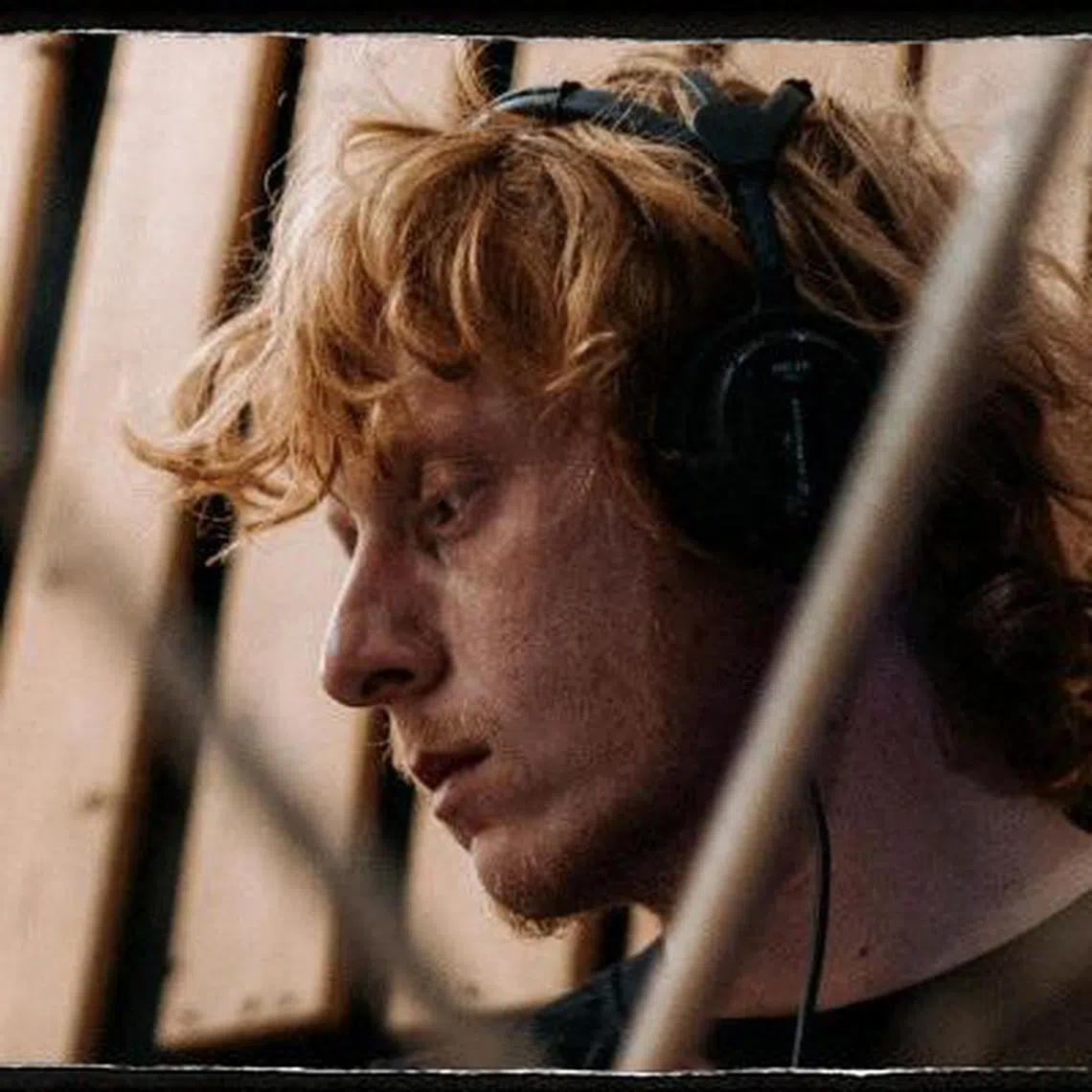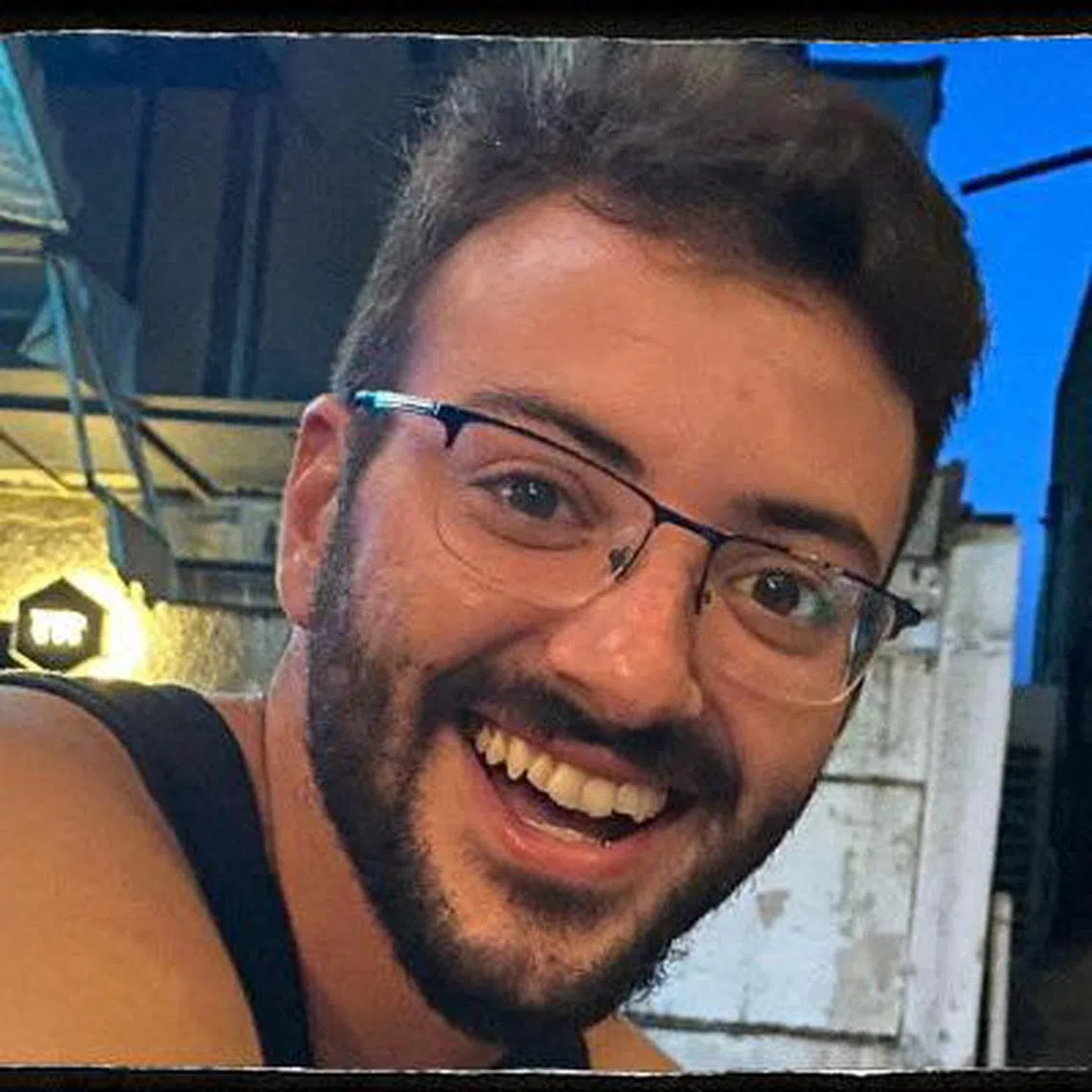An avid motorcyclist, a drummer, a basketball fan: 3 hostages killed by Israeli forces by mistake
Sign up now: Get ST's newsletters delivered to your inbox

Israeli forces “mistakenly identified three Israeli hostages as a threat”, the military said in a statement.
PHOTO: REUTERS
JERUSALEM – Three Israeli hostages killed mistakenly in Gaza by Israeli forces had been holding up a white flag, according to an initial inquiry into the incident, a military official said on Dec 16.
A soldier saw the hostages emerging tens of meters from Israeli forces in the area of Shejaiya on Dec 15, the official said.
“They are all without shirts, and they have a stick with a white cloth on it. The soldier feels threatened and opens fire. He declares that they are terrorists, they (forces) open fire, two are killed immediately,” said the military official.
The third hostage was wounded and retreated into a nearby building, where he called for help in Hebrew, the official said.
“Immediately, the battalion commander issues a ceasefire order, but again there is another burst of fire towards the third figure, and he also dies,” said the official. “This was against our rules of engagement.”
The military identified the three as Mr Yotam Haim and Mr Alon Shamriz, who had been taken from Kibbutz Kfar Aza during the Hamas-led assault on Israel on Oct 7,
Rear-Admiral Daniel Hagari, chief spokesman for the Israeli military, had earlier expressed “deep sorrow”.
“This is a sad and painful incident for all of us, and the IDF bears responsibility for everything that happened,” he said, referring to the Israel Defence Forces.
The Hostages and Missing Families Forum, which represents those kidnapped on Oct 7 and their relatives, issued a statement on the evening of Dec 15 saying it shared in the “profound grief” of the families.
Mr Talalka was working at a chicken hatchery near Kibbutz Nir Am on Oct 7 when he was abducted. He had spoken with his sister on the phone, telling her he was injured by terrorist gunfire, before the call was disconnected, according to the group’s spokeswoman, Ms Liat Bell Sommer.
He was “an avid motorcyclist who loved to ride around the countryside”, said Ms Sommer.

Mr Samer Talalka was was from Hura, a Bedouin Arab town in southern Israel.
PHOTO: REUTERS
Mr Talalka was from Hura, a Bedouin Arab town in southern Israel. He was one of several Bedouin hostages, members of a low-profile Israeli minority. At least 17 of the roughly 1,200 people who were killed in the attack on Oct 7 were Bedouins.
Mr Haim was a drummer who had been slated to perform at a metal music festival in Tel Aviv on Oct 7, Ms Sommer said.

Mr Yotam Haim was a drummer who had been slated to perform at a “metal music festival” in Tel Aviv, Israel, on Oct 7.
PHOTO: REUTERS
Mr Shamriz was a “lover of life” and a basketball player and fan who had been accepted into college, and was about to start a course of study in computer engineering, Ms Sommer said.
The office of Israeli Prime Minister Benjamin Netanyahu released a statement calling the killings “an unbearable tragedy” and expressing empathy for the hostages’ families along with support for Israeli soldiers, “who are devoted to the sacred mission of returning our hostages, even at the cost of their lives”.
“Even on this difficult evening,” the statement said, “we will bind up our wounds, learn the lessons and continue with a supreme effort to return all our hostages home safely.”

Mr Alon Shamriz was a “lover of life” and a basketball player and fan who had been accepted to college and was about to start a course of study in computer engineering.
PHOTO: REUTERS
Mr Benny Gantz, a member of Israel’s war Cabinet, said in a statement on social media that his heart was broken. Addressing the three hostages’ families, he said: “The whole nation of Israel is crying with you.”
Families of hostages have been pressuring Mr Netanyahu to prioritise the captives and “pay any price” for their release. Some marched in November from Tel Aviv to his office in Jerusalem to protest against his handling of the situation, and protests outside his office have continued.
On the night of Dec 15 in Tel Aviv, hundreds of protesters took to the streets to demand a deal for the immediate return of all the hostages.
Government officials, including Defence Minister Yoav Gallant in comments this week, have argued that the intense fighting in Gaza will create the conditions for the hostages’ release. But pushback from those who disagree is bound to intensify after Israel’s admission that it had killed hostages in error.
On Dec 16, the hostages’ relatives will address the “terrible disaster”, Ms Sommer said in a statement, gathering at what is now known as the Hostages Plaza in Tel Aviv.
Hostages released in deals with Hamas have thanked the protesters for keeping up the pressure on the Israeli government.
Mr Netanyahu is also under pressure from one of Israel’s staunchest allies, the United States, to fight more surgically and end the ground invasion of Gaza.
US officials have also been urging the Israeli government to resume the indirect negotiations with Hamas that led in November to a week-long pause in the fighting, the release of more than 100 hostages and an increase in humanitarian aid entering Gaza. NYTIMES, REUTERS


